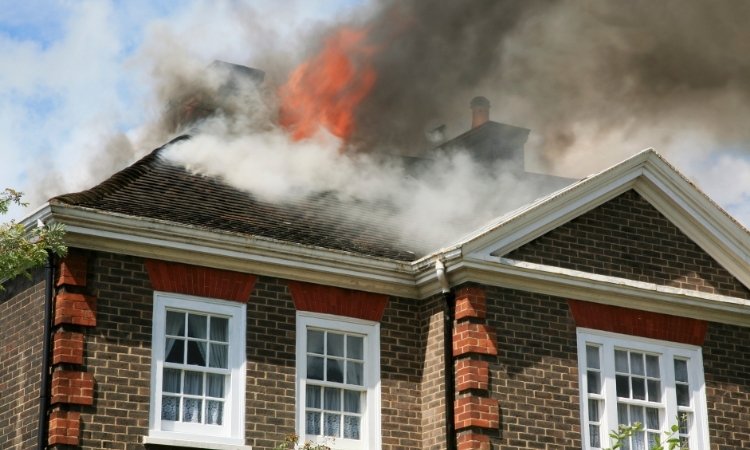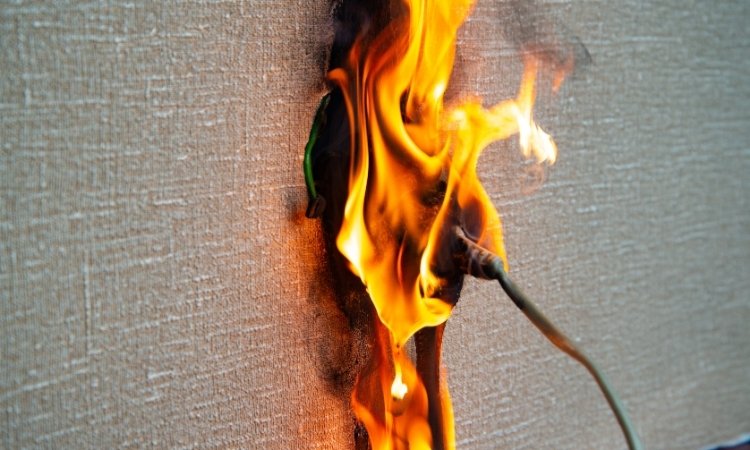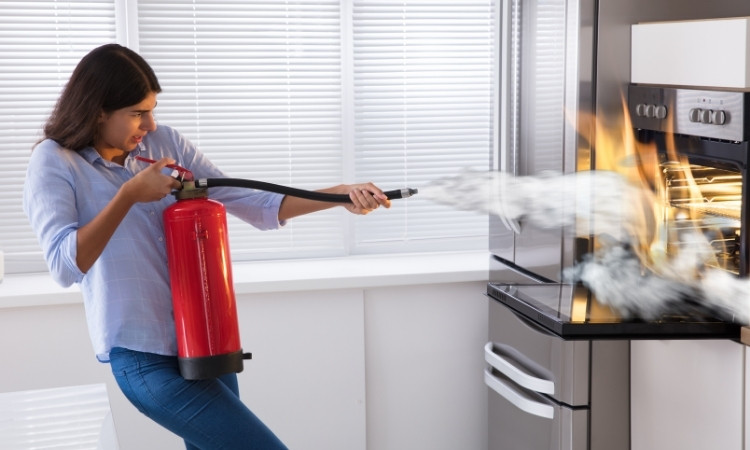To protect your home from Electrical Fires, it’s important to know how fires actually start inside our homes. In Singapore, where most of us live in HDB flats or private condominiums packed with electrical appliances, fire risks can go unnoticed. I’ve seen this firsthand with burnt sockets, melted plugs, and singed extension cords, all caused by habits we don’t think twice about.
In this article, I’ll share practical advice on how to protect your Home From Electrical Fires based on common local practices, Singaporean household habits, and HDB and condominium layouts. Whether you live in a landed property or a compact apartment, these tips can help you avoid potential disasters. Moreover, LS Electrician Servicing Singapore’s detailed process is a guide on this matter. Let’s also not forget their efficient services in distribution box installation, power failure troubleshooting, and switch installation domains.
Why Electrical Fires Happen in Singapore Homes
Singapore may be one of the safest countries in the world, but electrical fires still happen often because of overloaded sockets, faulty appliances, or poor maintenance. The Singapore Civil Defence Force (SCDF) reported several residential fire cases yearly, many caused by electrical origins.
Some common reasons:
- Overuse of extension cords
- Faulty wiring in older HDB flats
- Cheap or uncertified electrical appliances
- Lack of awareness on proper maintenance

Tips to Protect Home From Electrical Fires in Singapore
1. Never Do DIY Electrical Work at Home
Singaporeans are known for being resourceful, but when it comes to electricity, DIY can be dangerous. If you need to change wiring, move power points, or install ceiling fans, always use a licensed electrician approved by the Energy Market Authority (EMA).
Example: A friend in Bukit Batok once tried to add a socket behind his TV console. Two weeks later, there was a burning smell from the wall. A licensed electrician had to redo the wiring, which cost more than if he had hired a pro in the first place.
2. Be Careful with Extension Cords and Power Strips
In most Singapore flats, space is limited, and we tend to use extension cords to plug in multiple devices. However, using cheap, overloaded extension strips can lead to overheating.
What you can do:
- Buy extension cords with surge protection and the SAFETY Mark.
- Do not plug heavy appliances like washing machines, air fryers, or kettles into extension strips.
- Keep cords untangled and away from wet areas like the kitchen sink or washing machine.
3. Unplug High-Heat Appliances After Use
Some appliances are small but powerful. Irons, kettles, toasters, and hair dryers produce a lot of heat and should never be left plugged in.
Simple habit: After ironing clothes or using your kettle, always unplug it and not just switch it off.
In my own home, I’ve made it a rule to unplug every non-essential device before heading out. You get peace of mind in a matter of seconds.
4. Use Only Appliances with the SAFETY Mark
In Singapore, electrical appliances must carry the SAFETY Mark to meet local standards. This is especially important when buying from online marketplaces, where some products are imported and not tested for local use.
What to check:
- Look for a red SAFETY Mark label with a circle and a tick.
- Avoid appliances with missing user manuals or foreign plug types.
This is a small detail that many skip, but it plays a critical part in protecting your Home From Electrical Fires.
5. Install an RCCB and Test It Monthly
A safety device, a Residual Current Circuit Breaker (RCCB), turns off electricity when it detects a malfunction. Most newer HDB flats already have one, but you should test it monthly.
How to test:
- Open your distribution board.
- Look for a button labeled “TEST” on the RCCB.
- Press it. If the power cuts off, it’s working. If nothing happens, call an electrician.
This is a simple step but one of the most effective ways to prevent hidden electrical dangers and protect your Home From Electrical Fires.

6. Keep Flammable Items Away from Sockets and Appliances
In many kitchens or bedrooms, we often see towels, curtains, or papers near sockets. This is risky, especially near appliances that generate heat.
Quick tip: Always keep cloth, plastic bags, or paper boxes away from:
- Power outlets
- Charging stations
- Kitchen appliances like rice cookers or ovens
This reduces the chance of a fire spreading if something sparks.
7. Educate Everyone in the Household
Many Singapore homes have domestic helpers, children, or elderly parents. Everyone should know how to use appliances safely.
What to teach:
- How to unplug appliances
- Do not use wet hands on switches
- How to turn off the main power supply in an emergency
Good habits only work if the whole household follows them. Preventing Home Electrical Fires is not one person’s job. Rather, it’s everyone’s responsibility.
Final Word
In Singapore, where our homes are built close together and packed with appliances, electrical safety should never be taken lightly. To truly protect Home From Electrical Fires, it’s not about installing the most expensive system. It’s about taking small, consistent steps every day.
I’ve visited homes that were a fire waiting to happen, including overloaded plugs, dusty outlets, and tangled wires. All avoidable. Start by fixing one thing today, even if it’s as small as unplugging your rice cooker.
The best part? You don’t need to be an expert. You just need to care enough to take action. That’s how you protect your Home From Electrical Fires in Singapore, one small step at a time.
Don’t wait for a scare to make changes. Begin today with a walk-through of your home and take that first step toward true Home Protection from Electrical Fires.
